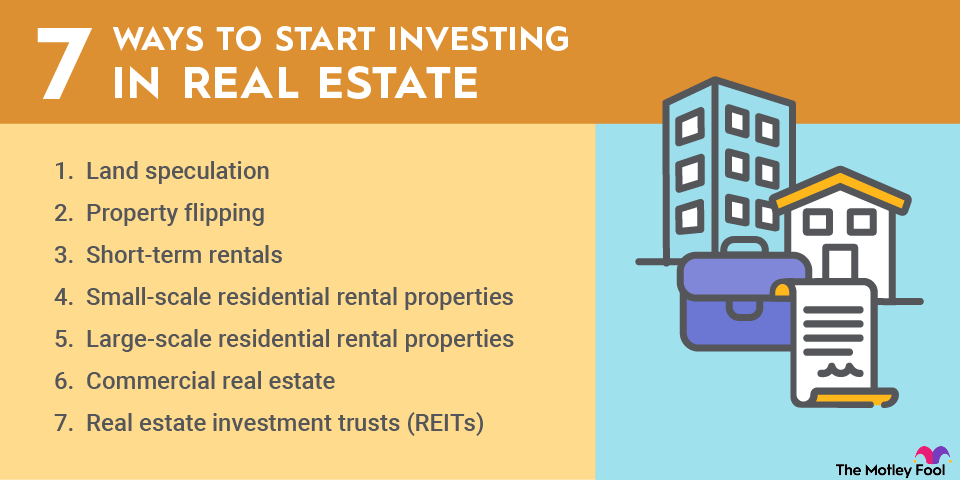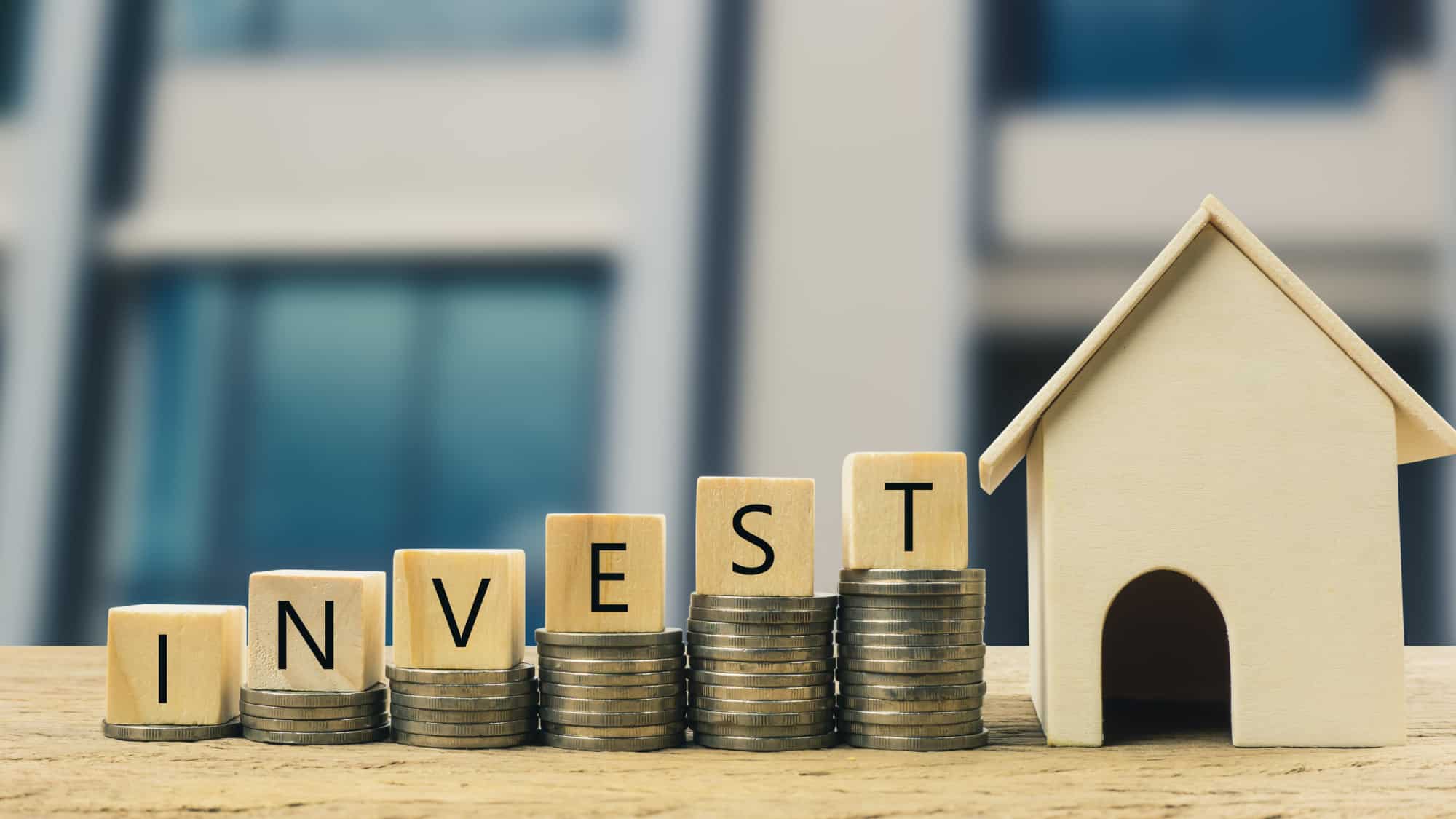Are you intrigued by the idea of growing your wealth through real estate investing but unsure where to start? You’re not alone.
Many people see the potential of real estate but feel overwhelmed by the complexity and the risk involved. The good news is that with the right guidance, you can confidently step into the world of real estate investing. Imagine the financial freedom and security that comes with a well-chosen property portfolio.
You’ll discover simple, actionable steps to help you begin your real estate investing journey. We’ll break down complex concepts into clear, manageable tasks so you can take your first steps today. Stay with us, and unlock the secrets to building a prosperous future through real estate.

Real Estate Investing Basics
Real estate offers many ways to invest. Residential properties include houses and apartments. People live here. Commercial properties are for businesses. Shops and offices fit here. Industrial properties include factories and warehouses. They store goods. Retail properties are for shopping. Malls and stores fall in this group. Land can be bought too. It may be empty or farmland. Each type has its own benefits. Knowing these types helps in choosing wisely.
Knowing key terms is important. A mortgage is a loan for buying property. Equity is the value you own in a property. Appraisal is the process of valuing a property. Depreciation refers to a decrease in value over time. Cash flow is the money left after expenses. ROI means return on investment. It shows profit from an investment. Understanding these terms helps in making better decisions.

Benefits Of Real Estate Investing
Real estate investinghelps to earn money. Rent provides monthly cash flow. This money can be stable. It can help pay bills or save. Many people find it helpful.
Property value can rise over time. This is called appreciation. Houses often become worth more. This means selling can bring profit. Investing in real estate may be smart.
Real estate offers tax benefits. Investors can deduct expenses. Repairs and mortgage interest are examples. These savings can be significant. They help reduce tax bills.
Setting Investment Goals
Short-term goals help in quick profits. These goals may include flipping houses. Long-term goals focus on building wealth. This involves buying properties for renting. Both goals need planning. Time plays a crucial role. Short-term goals need faster actions. Long-term goals require patience. Investors must choose wisely.
Investing always involves risks. Knowing risks is important. Some risks are small. Others can be big. Market changes affect investments. Economic factors play a role. Investors must assess risks carefully. Risk management is key. It helps reduce losses. Understanding risks helps in better decisions.
Financing Your Investment
Traditional mortgages are a common way to buy property. Banks lend money and you pay monthly payments. You need a good credit score to get one. Usually, a down payment is needed. This is part of the property’s price. The interest rate is important. It tells you how much extra you pay. Check different banks to find the best rate.
Some people use alternative financing for real estate. Private lenders can be an option. They give loans like banks but have different rules. Crowdfunding is another way. Many people give small amounts of money. Together, it helps buy property. Seller financing is also possible. The seller lets you pay over time. You don’t need a bank loan. Each choice has pros and cons. Look at your needs before deciding.
Researching The Market
Begin by looking at the local area. Check the prices of homes. Are they going up or down? This tells you if the market is good. Visit neighborhoods. See how many houses are for sale. A lot of homes for sale might mean prices are going down. Few homes might mean prices are stable or rising.
Trends help in making smart choices. Look at past trends to see future possibilities. Check if people are moving to the area. More people can mean better investment chances. Read news about the real estate market. This helps in knowing current happenings. Trends can change, so stay informed. Always keep an eye on what’s new.
Finding Investment Properties
Real estate agents can help find good properties. They know the market well. Agents have many connections. They can show you hidden deals. Working with agents saves time. They handle paperwork and negotiations. Agents offer advice based on experience. They can point out potential issues. They understand local laws and rules. Building a relationship with an agent is smart. They want to help you succeed. Choose an agent with a good track record. Always check their references. Trust is key in real estate deals.
Online platforms are useful for finding properties. Many websites list homes for sale. You can search by location and price. Photos and details help in decision making. Platforms often show neighborhood info. They provide market trends and data. Reviews of areas are available. Online tools allow virtual tours. You can see properties from home. Save time and effort with online searches. Connect with sellers directly. Online platforms are easy to use and quick. Always verify listings before buying.
Evaluating Property Potential
Understanding the value of a property is key. Look at recent sales in the area. Compare prices and features. Focus on location and size. These factors affect the price. Check for any unique features. They add extra value. Condition of the property is crucial too. A well-kept home holds more value.
Walk through the property carefully. Notice any damages or repairs needed. Inspect the roof and walls. Check plumbing and electric systems. Use a professional if unsure. Safety is important too. Look for any hazards. A thorough inspection saves money later. It ensures a good investment. Take notes during the visit. They help decide later.
Making The Purchase
Negotiation is a key part of buying real estate. Start by knowing the market price of the property. Sellers often ask for more than they expect to get. Offer a fair price. Be polite but firm. Sometimes, sellers are willing to lower the price if you ask. Terms are important too. Ask for flexible payment options if needed. Try to get repairs included in the deal. Inspections can find problems before buying. Use these to negotiate better terms. Always read the contract carefully.
Closing is when you become the owner. You need a lawyer to help. They check the paperwork for mistakes. Title companies ensure no one else owns the property. You pay the closing costs. These can be fees for paperwork. Insurances might be needed too. Make sure to have everything ready. It’s important to have a plan for payments. Congratulations, you are now a property owner!
Managing Your Investment
Starting in real estate investing requires careful planning and research. Begin by understanding market trends and property values. Establish clear financial goals and explore various investment options to match your budget.
Handling Tenants
Finding good tenants is very important. Good tenants pay rent on time. They also take care of the property. Always check their background before renting. Talk to their past landlords. Ask if they were good tenants. Make sure your tenants have a job. This way, they can pay rent on time.
Communication is key. Talk to your tenants often. Solve their problems quickly. Happy tenants stay longer. This means fewer vacancies for you.
Property Maintenance
Keep the property in good shape. Regular checks help find small issues. Fix them before they get big. This saves money. Clean the property often. Make sure everything works well.
Hire professionals for repairs. They do a good job. This keeps the property safe. Your tenants will be happy and stay longer. Happy tenants tell others. This helps you get more tenants.
:max_bytes(150000):strip_icc()/most-important-factors-investing-real-estate.asp-ADD-FINALjpg-32950329a30d4500b6d7e0fd0ba95189.jpg)
Building A Real Estate Portfolio
Investing in different property types can be wise. Residential, commercial, and industrial properties offer unique benefits. Each has its own risks and rewards. Mixing these types can reduce risk and increase potential for profit. Location matters too. Choosing properties in various cities or states adds security. Market fluctuations affect regions differently. Having a mix ensures stability. Consider investing in real estate funds or trusts. These offer diversity without owning physical property. Explore options like REITs for a balanced portfolio.
Start small with one property. Learn the basics first. As confidence grows, add more. Set clear goals for growth. Monitor your investments regularly. Identify opportunities for expansion. Use profits to buy new properties. Leverage financing options wisely. Loans can help scale faster. Keep track of market trends. Adjust your strategy as needed. Building a team of professionals aids growth. Hire a property manager for efficiency. Consult with real estate experts for advice.
Frequently Asked Questions
What Is Real Estate Investing?
Real estate investing involves purchasing properties to generate income or profit. Investors can earn through rental income, property appreciation, or both. It’s a popular way to diversify portfolios and build wealth. Understanding market trends and property values is crucial for successful investing in real estate.
How Do I Start Investing In Real Estate?
Begin by researching the real estate market and setting clear investment goals. Determine your budget and financing options. Consider starting with residential properties or real estate investment trusts (REITs). Educate yourself on property management, legal requirements, and market trends to make informed decisions.
What Are The Risks Of Real Estate Investing?
Real estate investing carries risks such as market fluctuations, property depreciation, and tenant issues. Economic downturns can affect property values and rental income. Proper research, planning, and risk management strategies can mitigate potential losses and enhance investment success.
Is Real Estate Investing Profitable?
Real estate investing can be profitable with the right strategy and market understanding. Profitability depends on factors like location, property type, and economic conditions. Long-term investments often yield better returns due to property appreciation and consistent rental income.
Conclusion
Starting real estate investing can be a rewarding journey. Begin with research. Understand market trends and property values. Set clear goals. Decide on budget and investment type. Consider rental properties for steady income. Look for growth areas in your city.
Connect with local experts. Network at real estate events. Stay informed about local laws and taxes. Keep learning as you grow your investments. Real estate can be a solid path to financial growth. Start small, build confidence, and enjoy the rewards over time.
Remember, patience and persistence are key to success in real estate investing.
